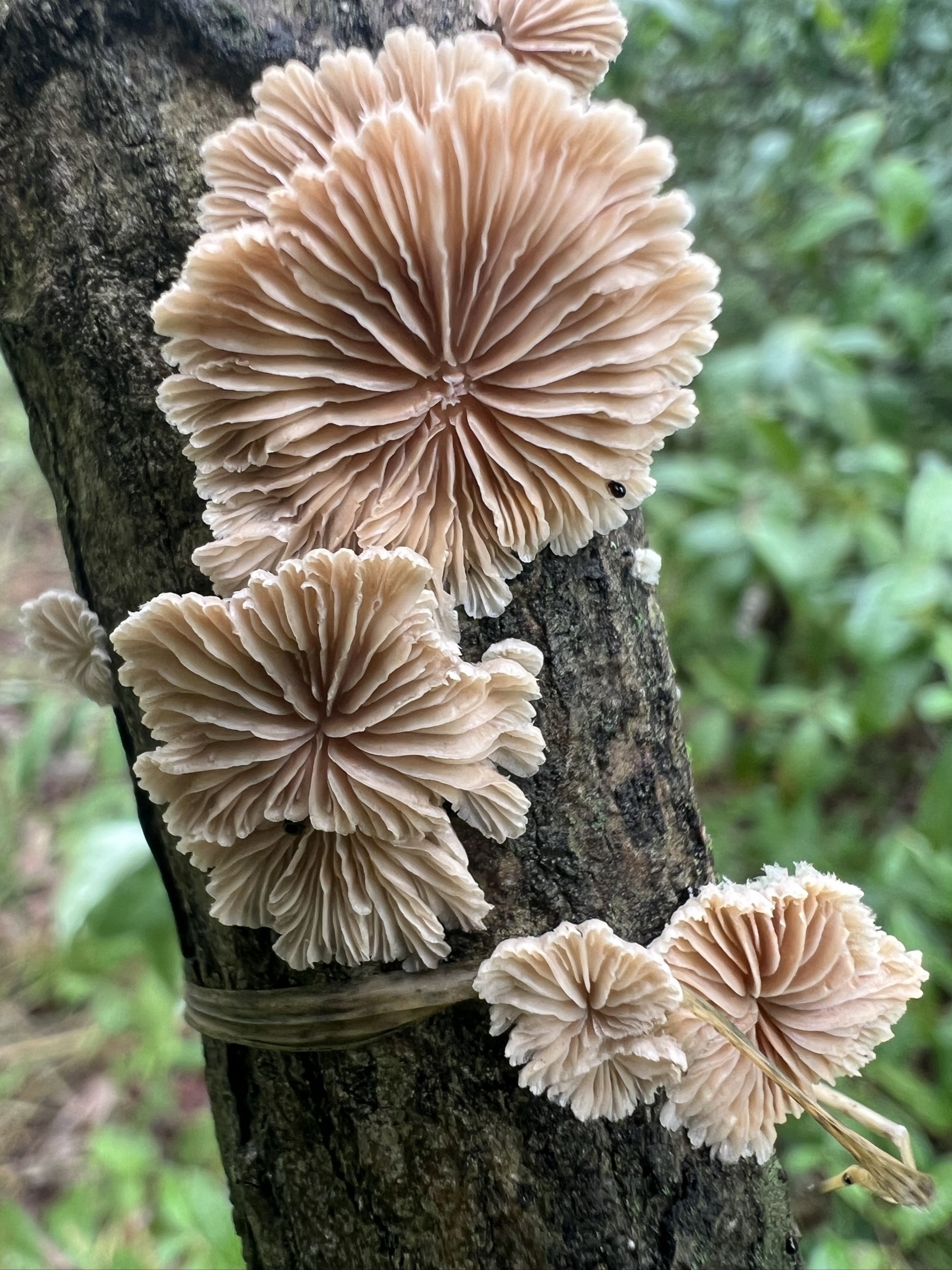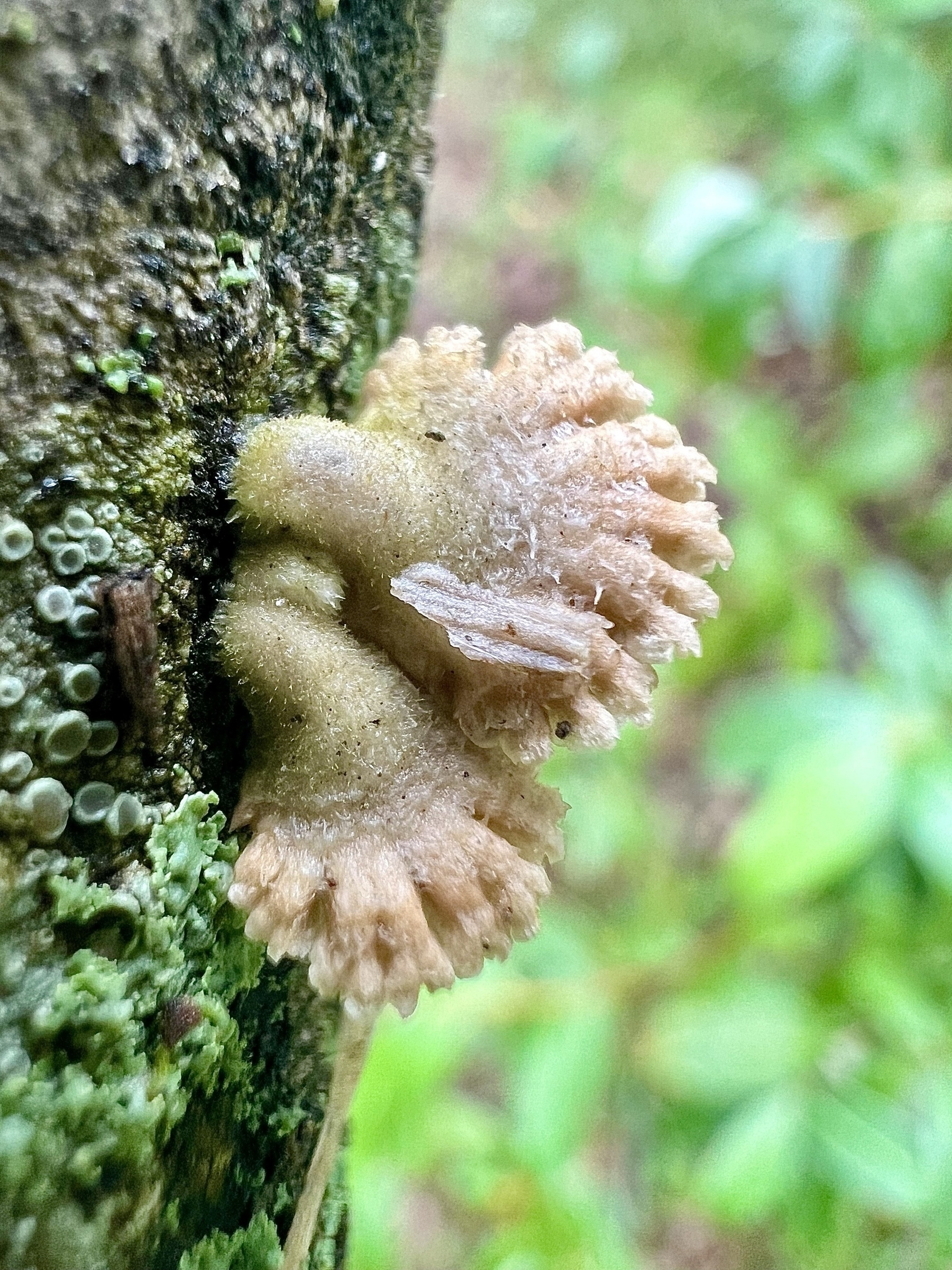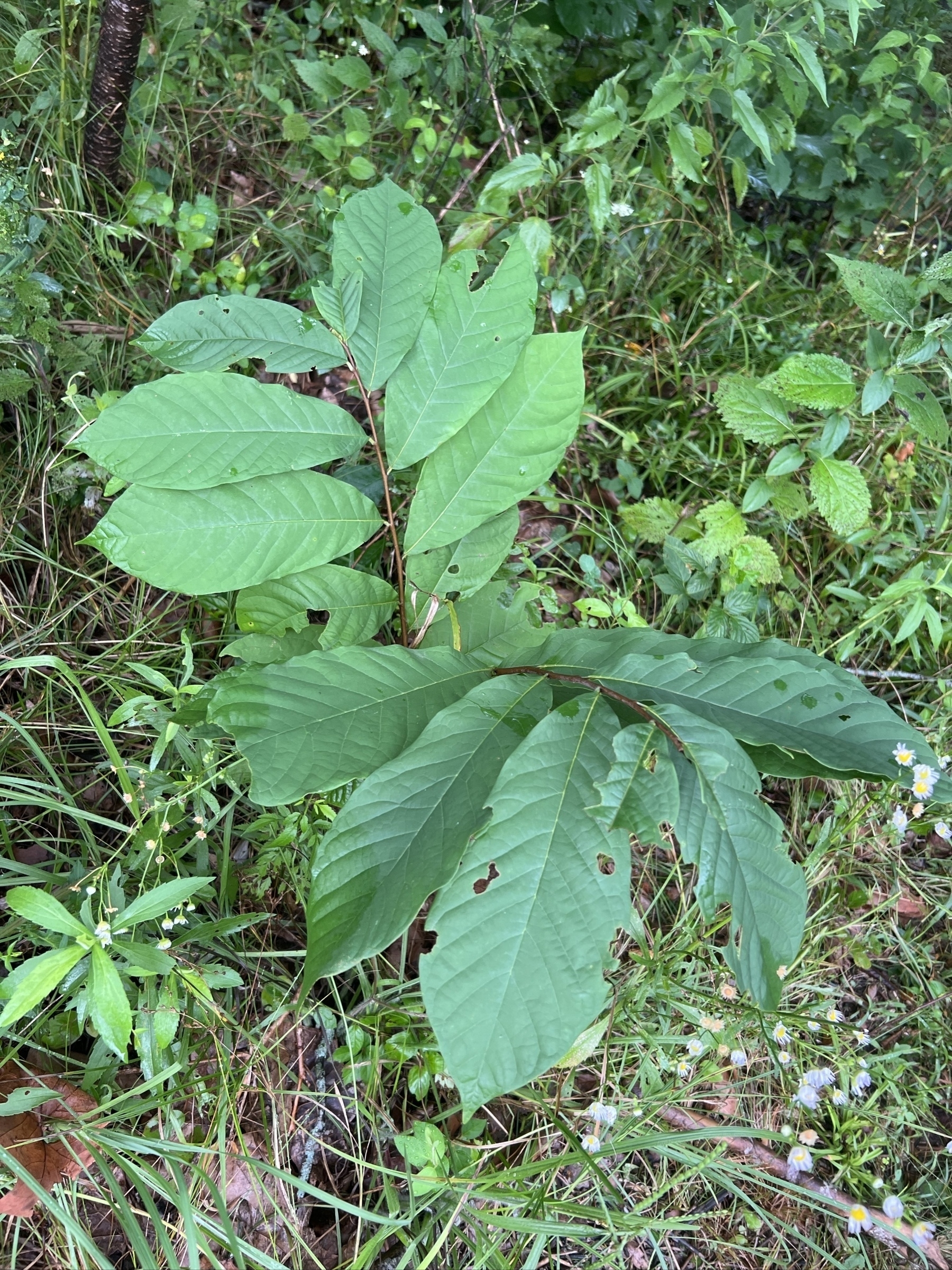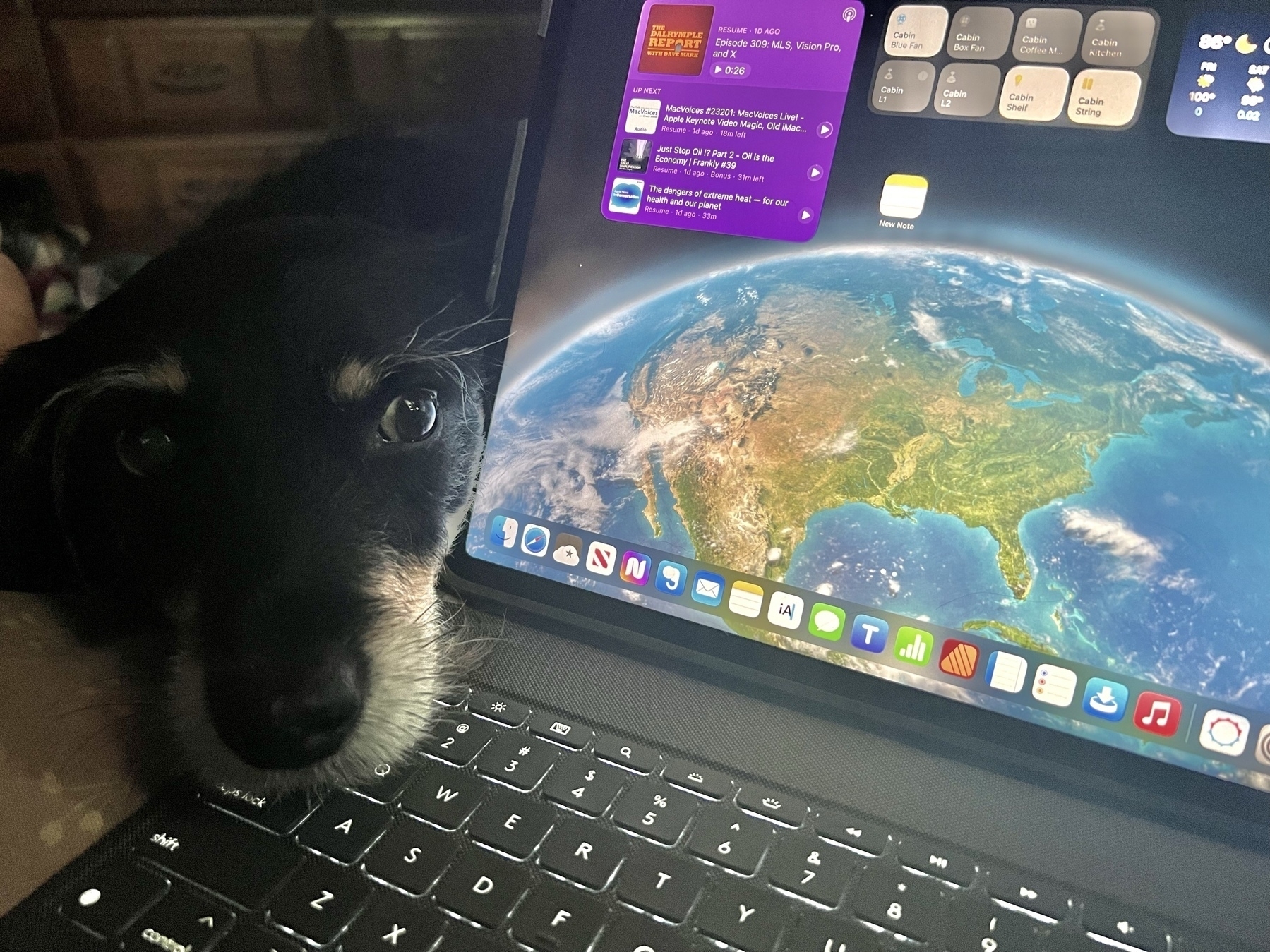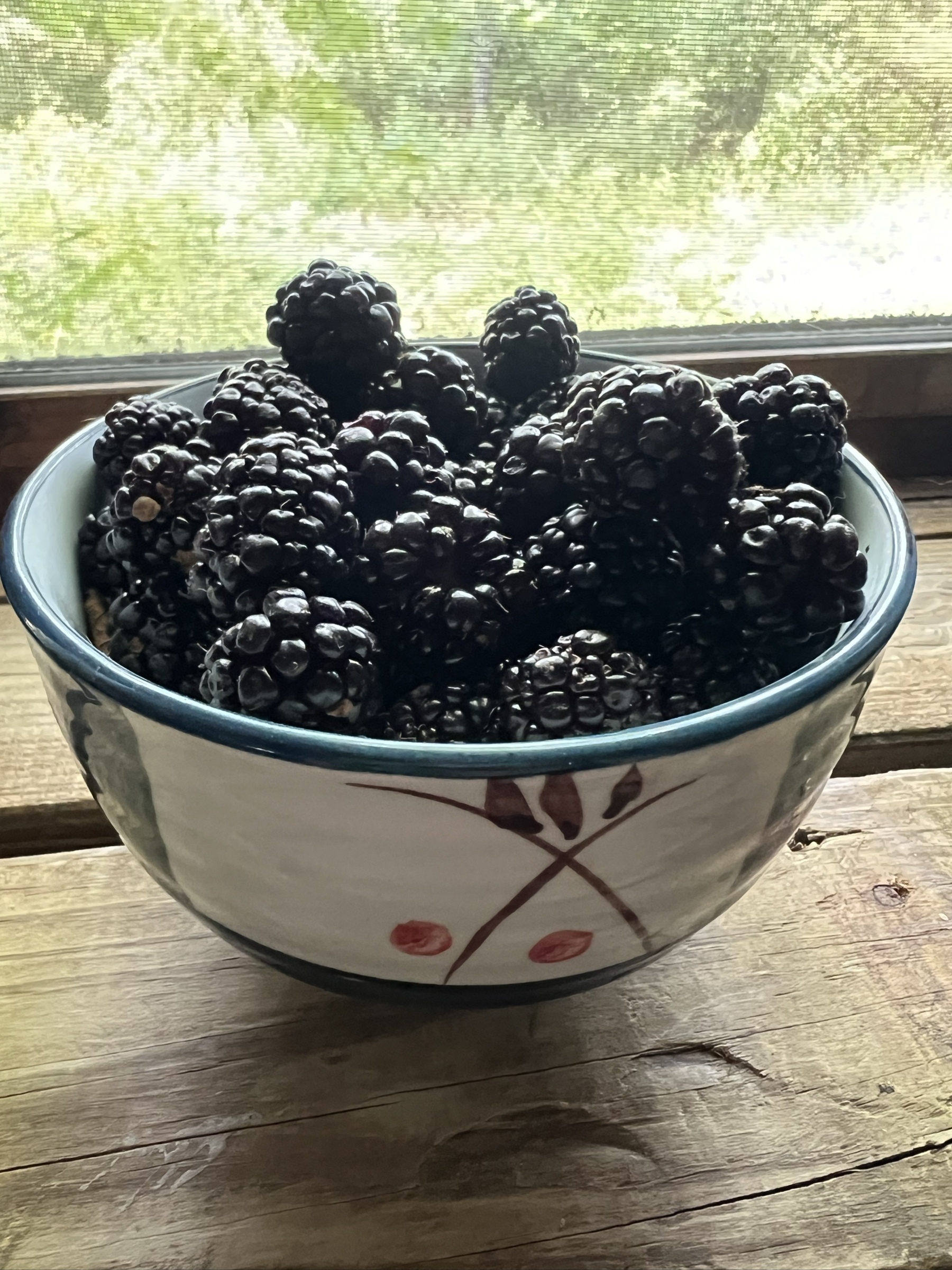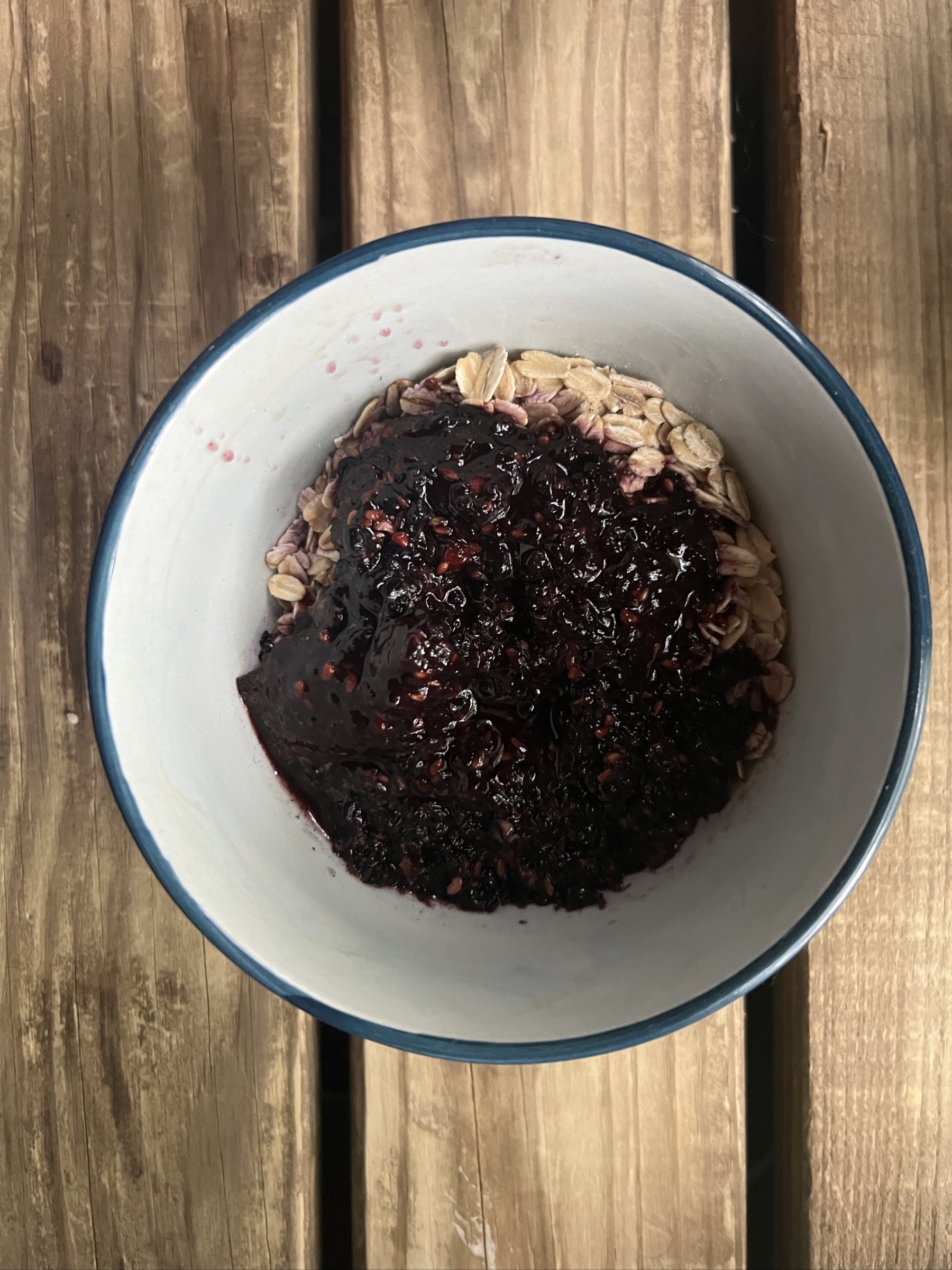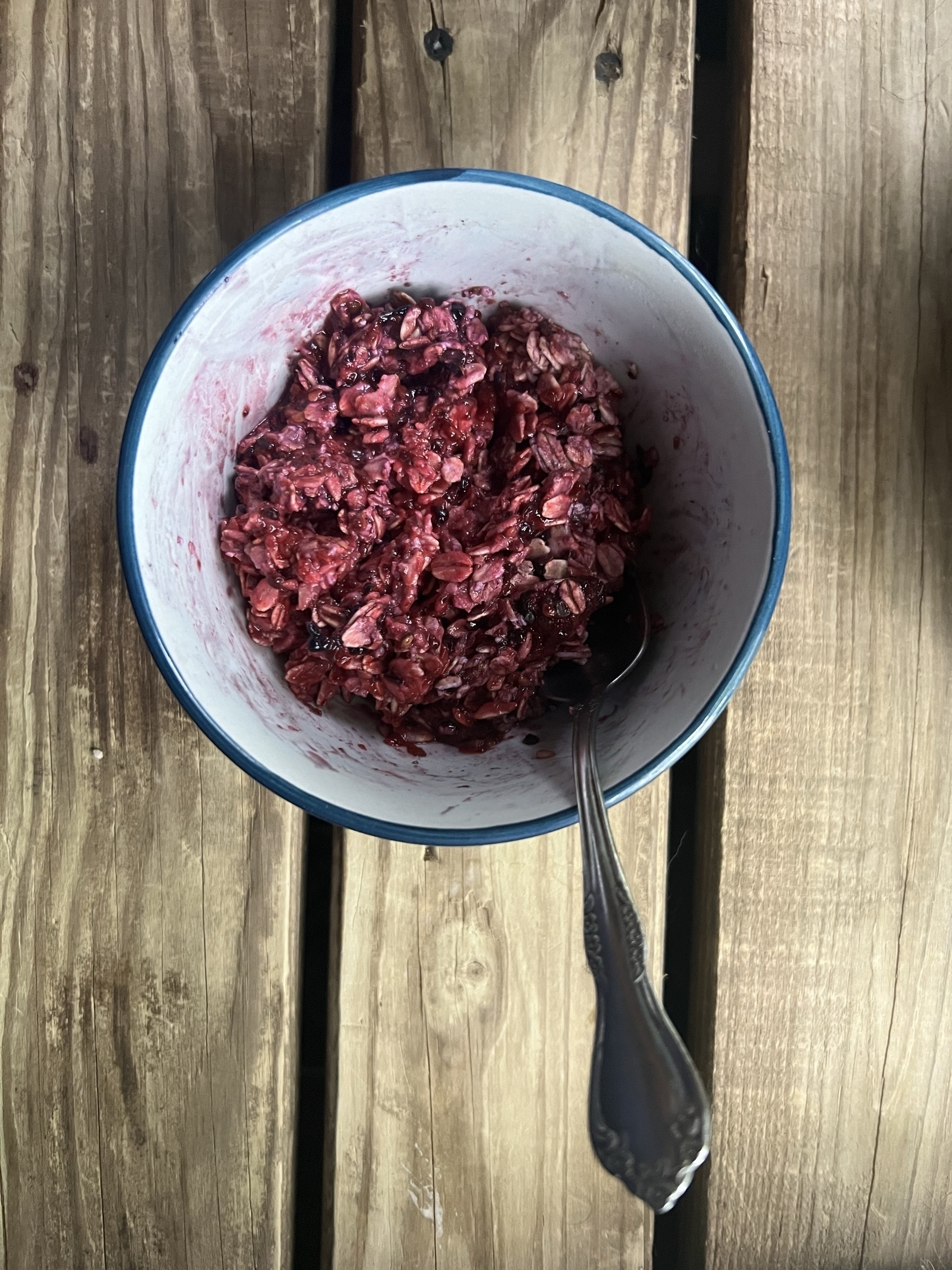Tiny little Splitgill mushrooms, Schizophyllum commune. So tiny but both the top and bottom sides are full of texture.
As climate debates remain polarized and politicized, Huckabee’s guide is part of a small but determined contingency of climate disinformation materials marketed to children and families…
This sort of deliberate disinformation is largely to blame for the public’s lack of science literacy, particularly in regards to climate science. I’m both disgusted and fascinated by the way that conservative Christian politicians in the US have manipulated their base. But also, how that base now seems to have more control.
Mike Huckabee Is Now Peddling Climate Misinformation to Children – Mother Jones
This morning I discovered a small group of pawpaws growing just 150 feet from my cabin! 🤗 I planted 2 in a different spot last spring but these volunteers are growing in the other spot I was considering. Which leads me to think there must be more in the area that I have yet to discover. 🤗
To understand this moment, we have to recognise that there is an existential struggle on both sides. While environmental scientists and activists fight for the very survival of the habitable planet, the fossil fuel, meat and internal combustion industries are fighting for their economic survival. Either they are regulated out of existence or human society across much of the world will fail. We cannot all win: either these industries survive or we do.
Seven states and 30 Native American tribes lying in the Colorado River Basin prepare to make hard choices as water levels plummet due to a 23-year drought.
I fail to understand how using a desert for agriculture, golf courses and large cities makes any sense. Even less so as intensifying climate change is now making it worse. And it will only get worse.
Today’s 4am pondering: Why do I find it so difficult to relate with my fellow humans? To connect in a meaningful way. Sure, I can talk about the weather. I can handle chit-chat. But idle banter is usually not meaningful connection. Warning, the post ahead is meandering and perhaps of little interest to others.
Last night, innocently enough, I discovered a new-to-me blog and spent an hour reading through a couple posts before bed. Upon waking this morning rather than hopping online to browse micro.blog or Mastodon my mind began wandering and wondering. It started with thoughts of that blog and what about it had appealed to me. Partly it was the low tech nature of someone coding a website by hand rather than the usual blog. In a world of brief, shallow status updates and quips, I’d stumbled on a personal website of individual page-articles that reminded me of the web of the late 1990s. And it was the voice of her writing, a human sharing her efforts to learn. Simple, authentic sharing. More about this soon in a separate post.
From there my mind turned to thoughts of a little family meet-up today. My folks who live just a mile away are stopping in to visit with my aunt and uncle and I was invited as well. They’re probably going to play some games. I’m not a game player so will likely just visit for a bit. It’s the kind of thing I usually skip but my folks are moving several states away in a couple weeks so it’s an opportunity to visit.
A personal insight, a little discovery. As it happens, I often skip such visits. I’ve missed out on many such chances to visit and I think this morning I stumbled on the reason. (Sidebar: Strange that it wasn’t clear to me before. Our brains are weird like that sometimes. Or at least mine is. I’ll have something sitting there and though I’m aware of it, I’m not clear about it. It’s just sort of lurking. And then I’ll see it more directly and actually take the time to examine it. ) So why do I avoid visiting? The short answer is that I have very little interest in banter and gossip. My interest is in authentic conversation. Sometimes that might mean discussion about an issue of some sort. Or exploring interests. But generally, it means going a bit deeper. My interest is in knowing and being known.
It occurred to me this morning that perhaps my tendency to look for a certain depth is connected to my lifestyle. In short, I’m single and have been for most of the past 30 years. I’ve dated but my experience of “long term” partnerships amount to 3 relationships that each lasted about 2.5 years. And by choice I never had kids. For most of the past 15 years I’ve lived on my own in my tiny house. Pre-covid I had a few local friends that I’d see on a semi-regular basis and family visits were fairly regular. But I’m quite comfortable being on my own which means I have a lot of time to reflect. Whether it’s the state of the world or just enjoying and observing some aspect of the natural world, I tend to, in the words of one family member, “over-analyze everything”. Perhaps that’s true.
Not only have I been on my own but I live a simpler life than most which generally translates to having more free time. For several years I spent that time at a telescope and reading about cosmology. Other times it’s had me focused on learning about plants, birds, and generally the natural world around me. I volunteer for the local library and for a year of that time worked on a podcast which consisted of interviews with older county folk. Stories of mostly rural life experiences: farm life, a few folks that worked in the lead mines that were once a feature of this area, some that traveled to work and returned here later. Sadly the project paused just before Covid and has not since been reestablished.
All that said, previous to these years of a generally quiet life of solitude I’d lived in Memphis where I was a part of a buzzing, active community. It was a life rich in experience and steeped in sharing. Almost the complete opposite of my life now. But in both of those two stages of my life I believe I made an effort to be deliberate and present in an effort to grow as an individual but to do so in relationship to the community around me.
I left Memphis in 2004. It was a life transition that happened physically in terms of my location and social connections, transitioning away from a created, local community back to time with family. And as that was happening the internet that I had been a part of was also beginning to transition from small independent websites and blogs to social networks from MySpace to Facebook to YouTube to Flickr to Twitter and podcasts too.
In the quiet of this morning I find myself thinking about a world in which I’m less able to relate to those around me. When I’m with family as I will be later today I have difficulty communicating. Partly it’s because I’ve grown so concerned and in recent weeks deeply troubled by the growing climate crisis. It’s what I think about many of my days and my family have little interest in discussing it. So I bottle it up which makes listening to the small talk all the more difficult. But even before that my efforts to find ways to connect with family often felt difficult. My interests often seeming to be so far from others.
Which brings me back, full circle, to my discovery of a simple but thoughtfully written website. It may well be that the problem is one of my own making. As I’ve found it difficult to connect face to face I’ve spent more time reading online and too much of that time is spent on a “feed” of some sort. From Mastodon to Micro.blog, the scrollable timeline is very similar. Though both are an improvement over other social media they are still largely composed of short status updates fairly similar to the shallow small talk I dislike with family visits.
I’ve just discovered my new favorite iPad Nerd! Felicia, also known as the Low-Tech Grandma. After using Windows for most of her life she decided to switch to the iPad a couple of years ago and has documented the process.
After years of blogging on WordPress she decided to switch over to a hand coded static site. Not surprisingly she chose Textastic and wrote a bit about using it to code HTML on an iPad:
After a while, I noticed that I spent more time updating WordPress, the plugins, and themes than I did putting new content on the blogs. It was a time drain. So, I decided to slowly work on converting my blogs to static websites.
In the Windows environment, I used Notepad ++ as my HTML editor of choice. Unfortunately, it did not work on the iPad. So, I had to find a replacement. After much trial and error, I settled on Textastic. It is the perfect Notepad ++ replacement. As a matter of fact, I think I like it even better.
I love discovering geeks that fall outside of my experience of the tech “community”.
Nate Hagens discusses energy, specifics oil as the foundation of the modern economic system.
There are ecological and energetic laws that apply to all life, including humans and our economies. By accessing a huge surplus of dense carbon energy in the form of fossil sunlight, we’ve effectively turbo-boosted our economies, populations, and material wealth - but what happens if this fossil abundance were to go away? What are the systemic implications of an economy tethered to growth, tethered to carbon?
He ends the video with “10 Systemic Inferences” which I would simplify as: The primary problem is global capitalism.
It’s interesting and insightful to view the planet as an organism in which increasingly complex human social organization (dominated currently by capitalism) based on intensely concentrated fossil fuel energy has resulted in a machinery that is, by it’s own logic, not capable of a solution.
10 Systemic Inferences
- Oil is not the problem - the exponential monetary system is
- We need SYSTEMIC, not piecemeal, solutions to climate (eg EVS)
- Reduced oil availability will cause a financial/economic cascade
- The Maximum Power Principle applies to our energy behavior/choices
- Solving for: a) climate, b) equity and c) growth have different solutions
- Climate change is an emergent cultural phenomenon - not the fault of fossil fuel companies
- Oil is the master resource and will leave us before we leave it. The UK is unlikely to ‘stop oil’
- Democracies will never vote for austerity
- We are in a new ‘biophysical world. Old rules and expectations no longer apply
- Currently there is no “choice” to slow our metabolism. (But there are other choices)
Just Stop Oil !? Part 2 - Oil is the Economy | Frankly #39 - YouTube
On my morning walk a couple days ago I came upon an Eastern Towhee singing in some cedar trees. Same again this morning but a different song. I took a few minutes to listen to the other songs in Merlin Bird ID and am reminded, yet again, that learning about my feathered neighbors is a never ending process. For every bird song I learn there are so many others that I do not know. And of course, as I learn some I sometimes forget along the way. I’ll only ever know a tiny fraction and even then I’m not learning what the song is about.
Acknowledging the depth and complexity of the natural world is truly humbling.
Andy Bell’s harrowing account of being caught up in the wildfires in Greece. While I agree with his conclusion I hope he and others of the 10% stop holiday air travel. Those that are causing the least damage are suffering and yes, dying for the holidays and conveniences of the wealthy.
The climate emergency is here now. Not in the future. If you are planning to travel to affected countries, I’d strongly recommend you don’t for yours and everyone’s safety.
I often hear people ask, but what can I do. My own sister asked this question a week ago after listening to me go on and on for the thousandth time about how we’re not doing enough. So, I’ve made a list. It’s long. It’s not complete.
First, begin by looking at how you live. Our lives are different. My list below is just preliminary and based on my observations. But a key point is don’t wait for a broken government to fix your problems. Don’t wait for a lawmaker to force you to begin implementing the solutions today. Don’t put off the changes you have control over in your life today.
- Remember, you’re not entitled to everything you like. You’re. Not entitled to convenience and comfort. Stop accepting that it’s okay that your lifestyle might cause others pain and suffering. Acknowledge that. OWN IT. And stop accepting it.
- Stop flying
- Organize a climate protest. Join a climate protest.
- In the winter keep your heat at 55 F. Yeah, that’s cold. Put on extra layers of clothes. Figure it out. Adapt.
- In the summer keep your AC set to 78. Yeah. That sucks. It’s uncomfortable. Turn on more fans. Keep a fan near you. Splash cold water on your face. Do less in the heat of the day. Figure it out. Adapt.
- Turn your hot water heater down
- Eat less meat. Eat no meat. Stop wasting food.
- Stop buying products that come in plastic. If it comes in plastic you don’t buy it. Look for ways to minimize all of your waste. Yes, this means you often will have to do without things you like. You’re not entitled to everything you like.
- Stop driving. Or drive less. Lobby your local government for bicycle racks, for bicycle infrastructure. Ride your bike.
- Just do less. Much of the change we need is people doing less. Stay home. Do something in your neighborhood. Stop assuming you’re entitled to eating out, vacations and the sort of lifestyle so many assume they are entitled to. If it involves the burning of fossil fuels for travel.
- Don’t consume stuff you don’t need.
- Participate more in your government. Join or start a group that is advocating for better pedestrian and cycling infrastructure. Get a bike. Ride a bike for transport. Don’t make excuses for not doing so. If it’s not safe or you have physical limitations that’s okay, but don’t drive when you don’t HAVE to. DON’T DRIVE WHEN YOU DON’T HAVE TO.
- Treat your automobile as a necessary evil rather than a glorified cultural icon that brings social status and pleasure.
- If you must use an automobile make it count, get the most out of the carbon you are adding to the atmosphere. Minimize trips to stores. Buy as much as possible and stock up.
- In the summertime minimize baking and cooking during hot weather. Shift your diet to things that can be prepared without heating up a house from the inside.
- Share resources with neighbors and families. Don’t upgrade devices just because you want to. Live with what you have and repair, reuse, recycle everything. Treat “trash” as a resource because it is. Re-think your idea of “waste”.
- Stop growing grass lawns. Plant more native wildflowers for habitat. Plant fruit trees and fruit bushes.
- Examine your privilege. Make it a point to learn about how your life compares to that of others. The top 10% don’t seem to have taken much time to truly understand the context of how others live on the planet. Make it a point to understand how your lifestyle has caused pain and suffering to others. Yes, I’m repeating myself because it’s a point that warrants repeating.
- Understand that the things that you do matter. Both the positive and the negative. When millions of people repeatedly engage in behaviors that add carbon to the atmosphere it adds up. It adds up today and tomorrow and everyday going forward. Stop contributing to it.
- Work less, earn less, do less, spend less. Become okay with sitting on your porch and watching the birds. Take a walk. Help a neighbor fix a chair. In other words stay closer to home, help each other waste less. Find more value and meaning in the little things.
- Re-evaluate success and self worth. As it stands, success in wealthier nations equates to a negative. Get that. In a hyper-materialist-consumerist culture “success” as buying power is not a positive. Stop treating it like that.
- The climate emergency is a full blown emergency. Re-orient your life as though you were living in a real existential crisis. You are. Throw everything you’ve got at this. Encourage others to do the same. Sometimes you’ll be uncomfortable. Sometimes you’ll make others uncomfortable. That’s to be expected. We need to turn our lives upside down.
- Nothing about this is going to be easy. Accept that. It’s going to be messy. It’s going to hurt. It’s going to be difficult. This is why we have been avoiding it. We’ve made it worse. The longer we wait the harder, more painful it will get for everyone.
- Remember, we’re in this together. We’re in this together.
Perspective.
The average American refrigerator produces as much carbon emissions as the average citizen of Nigeria, .6 metric ton. The the average citizen of Mali produces only as much carbon as the average British tea kettle, .1 metric ton.
- David Wallace-Wells, Video: Climate Change: Where do we go from here, emissions figures added by me: Wikipedia.
In episode 176 of the iPad Pros podcast Chance Miller mentioned that when he’s using the iPad he misses TextExpander where he stores long text templates. While it’s possible to save text snippet shortcuts on the iPad they don’t retain line breaks. So any lengthy template of text will just result in a large block of text.
But there’s an easy work around: Shortcuts. Just set up a simple Shortcut for each text template you regularly use. While it can’t be formatted with rich text it will keep line breaks. And if you use Markdown you can, of course, add all of that for the formatting.
It’s just a two step Shortcut: Text > Copy Text to Clipboard. Give it a name you’ll remember, then use Siri to run it. With Siri’s new one word activation it’s quite fast to get your needed text then just paste. Or Command+Space and run from Spotlight then paste.
Not as easy as TextExpander but still pretty easy/fast.
Using the iPad with Stage Manager? Have a lot of Safari windows stacked up? Remember the different ways to activate App Expose to quickly pick the window you want:
- Double tap the Safari icon in the dock or tap and hold then select Show all Windows.
- If you’re using a Magic Keyboard (or another keyboard with the globe key) use the globe and down arrow shortcut.
- Look in the sidebar of recent apps on the left, tap or click the Safari icon (if it’s visible in one of the 4 spaces).
- Activate multitasking and tap the Safari icon anywhere you see it amongst your open apps.
Of course this works with any app but I suspect that for many people Safari is one that is most likely to have the most windows open.
My favorite and most eaten breakfast and snack is oatmeal. Simple, healthy, easy to prepare and so many optional variations. Most recently, it's blackberries because my bushes are covered. I just blend a cup of blackberries with a teaspoon of sugar, pour it over the uncooked oatmeal. Stir, add a wee bit of water if needed then microwave for a minute.
I’m finding the new Siri improvements way more useful than I expected. Though a small thing the no “Hey” required really does make for less friction in usage. And multiple follow-up requests without reactivation is also better than expected. Small refinements can make a big difference.
How did the US go from having luxurious, widely used passenger trains to the Amtrak system we have today?
Will the United States ever catch up to the rest of the world when it comes to train travel, or are Americans stuck with an underfunded, inefficient rail network forever?
More was spent in 2022 on US highways than in the combined 52 year history of Amtrak:
Federal Highways: 64.3 billion Amtrak budget: 2.3 billion
Updated high speed rail is an essential element of cutting our carbon emmisions as is cutting air travel.
I had a conversation with a family member over the weekend and my not too suprising takeaway: the wealthiest top 10% are great at personal accounting when it involves their individual and family finances. They care a great deal about their wealth and their future financial security. But ask them to do similar calculations about their contribution of carbon to the atmosphere and suddenly they’re not capable of math. Their individual efforts no longer matter and concern for the future evaporate.
The focus on personal and family wealth accumulation has taught the 10% to only think of themselves as individuals or in the unit of the nuclear family. The inability to extend outward to the greater math of the collective, of their contribution to the larger collective, really shows in the thinking about climate change.
The disconnect of the 10% is staggering. They are willing to shove off a great deal of pain and suffering in the name of their current lifestyle. What makes them comfortabe and happy today is what matters. The suffering they inflict on the poor of the planet, the other species of the planet, the future life on the planet simply does not figure into their concern or calculation.
From a recent morning walk. Some beautiful sun rays and a tiny little wildflower.
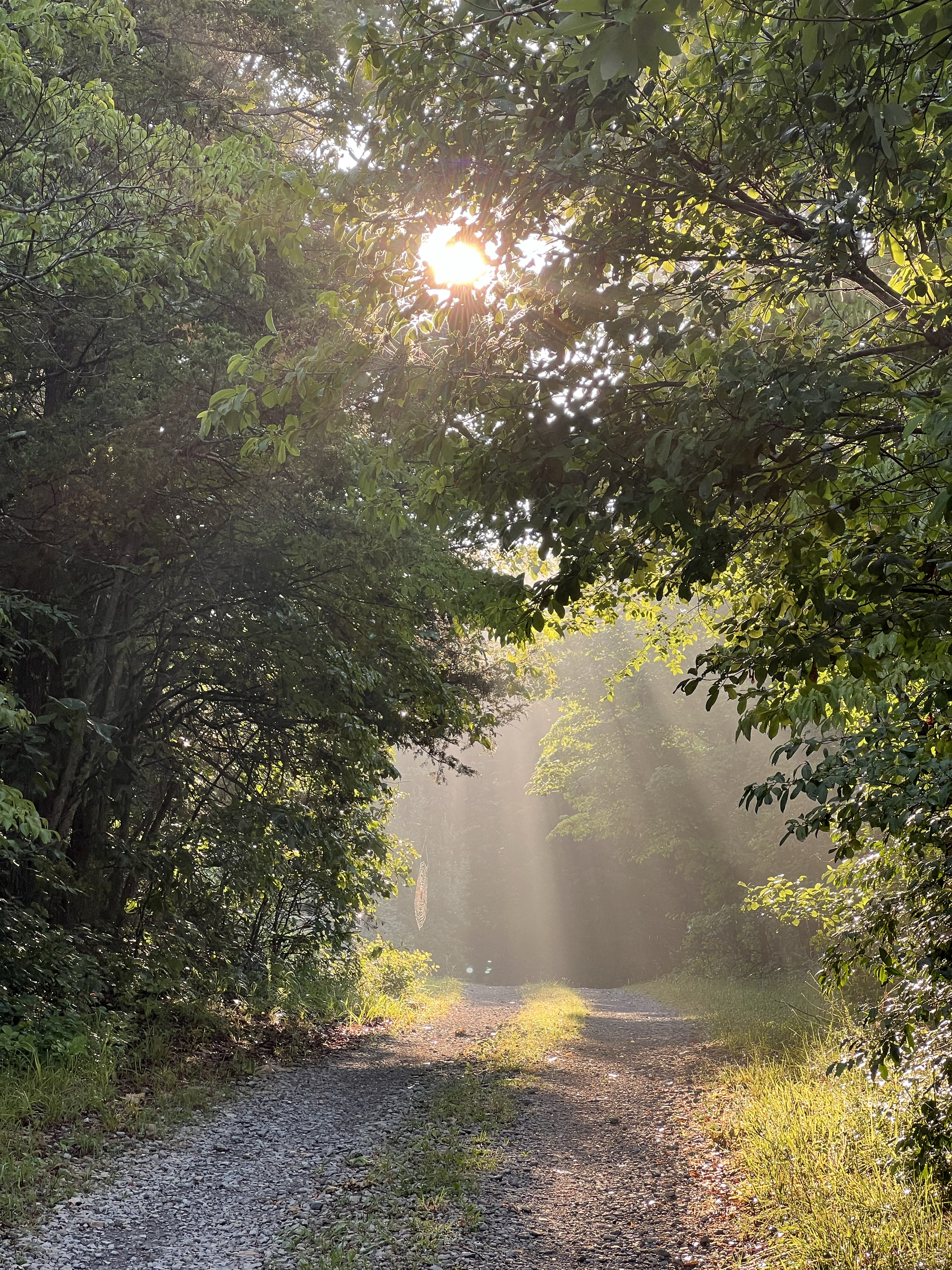
Dianthus armeria, the Deptford pink

